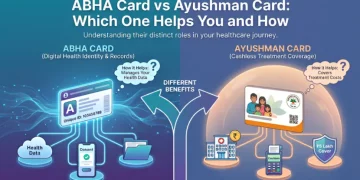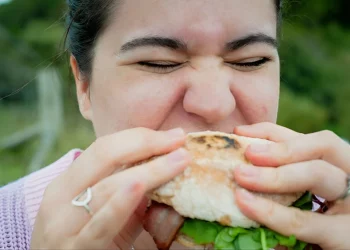More people are turning to clinical weight-control methods that bring results faster than they can mentally process. The body adjusts in weeks, but the mind often lags. That gap can be confusing. It helps to know what to expect and how to handle the emotional chaos that sometimes follows rapid physical change.
What Happens When You Lose Weight Fast
When weight drops quickly, by surgery, medication, or strict regimens, your body shifts inside and out. Hormones, hunger cues, and metabolism all recalibrate. You may feel lighter, sleep better, or have more energy. But emotionally? It’s rarely straightforward.
The scale moves, clothes fit differently, but your sense of self might not keep up. Your reflection changes faster than your mind’s image of you.
Identity and body image: Who are you now?
Feeling unfamiliar in your skin
You wake up and your clothes hang differently. Others comment on your appearance. Perhaps you avoided mirrors before, but now you’re seeing so much change that you wonder if you recognise yourself. That change can feel positive, but also disorienting. You might struggle with:
- “Am I my old self or this new version?”
- “Will people treat me differently now that I look different?”
- “If people liked me more because of my weight, what happens now?”
Confidence vs. external reaction
Weight loss usually leads to an increase in confidence, but also new dependence on: approval from others, social attention, and how you should behave. If you had somewhat defined your identity by the way in which your body looked before, an abrupt transformation will push you into unfamiliar territory. You may still cling to prior belief systems such as: “I wasn’t worthy,” “I had to hide,” or “I was not confident.”
The flip-side: feeling invisible
In some cases, you might feel less visible. If you had become used to the safety or familiarity of your old body, you might now find yourself in unfamiliar social roles. Maybe you’re receiving attention you don’t want, or you’re being judged on how you look rather than who you are. That can generate anxiety.
Eating habits, emotional eating, and the mental rhythm
Old patterns don’t vanish overnight
Under medical supervision only or alter food intake doesn’t automatically resolve emotional eating or food-related habits. If you used food for comfort, reward, distraction, or social connection, you’ll still need to face those mechanisms.
Struggle with guilt, control, and reward
Rapid weight loss may trigger feelings of “I must keep this up,” “I’m failing if I slip,” or “if I stop the drug, will I go back to old habits?” You may also feel guilt: “I’m getting results too easily,” or “Am I cheating?” That guilt can erode the emotional benefit of success.
Adjustment of eating identity
Perhaps food defines parts of your identity: cooking for others, feasting with friends, comfort-eating. Now your appetite is reduced, your calorie intake changes, and your social habits shift. You may have to redefine rituals. That takes emotional energy.
Confidence, expectation, and real emotions
The expectation trap
When people use weight-loss medications, they often expect the emotional payoff will follow automatically. The reality: You might feel good physically, but emotionally, you still carry old baggage: fears, body image issues, and self-criticism.
Among positive feelings, there can be surprises
Yes, you might feel proud, but you might also feel lost. Fear of regain. Unwanted attention. Shifts in how others treat you. If emotions start running wild, therapy helps. You don’t need to face it alone. Many clinics and support lines specialize in this exact moment, including programs that focus on emotional balance and Support programs such as addiction-recovery or rehabilitation centers, where body and mind healing often go hand in hand.
Trusting your body again
After a rapid change, you might wonder: “Will the weight come back?” “Where does this leave me if I stop medication or hit a plateau?” You might over-focus on the mirror, the scale, or the next milestone instead of stabilising emotionally.
Coping tools and long-term emotional strategies
Therapy and support
A good therapist can help you reconnect with yourself, separate identity from appearance, and calm the internal noise. For some, especially those managing both mental-health challenges, programs such as Dual Diagnosis treatment (for example, when both substance-use and emotional concerns are addressed together) can offer a more complete path to recovery — always consult a licensed clinician before enrolling. Don’t wait for things to spiral. There’s real help out there.
Body acceptance and integration
Work on accepting your new body as a part of you—not a reward or something to maintain at all costs.
- Practise gratitude for how your body supports you
- Be realistic: derma or excess skin and muscle tone take time to adjust
- Set non-scale goals: how you feel, your energy, your confidence
Rebuilding your relationship with food
Use this phase to reshape your eating habits:
- Explore what food means to you now
- Re-introduce food as a social connection
- Use mindful eating: focus on flavours, hunger, and fullness cues
- Plan for when medication slows or ends
Grounding habits beyond the medication
Medications assist, but they don’t replace mindset or lifestyle.
- Build a support community
- Use journaling to track mood and triggers
- Celebrate non-weight wins
- Prepare emotionally for plateaus or changes
Questions to ask yourself
- What feelings do I have about the body I’m leaving behind?
- How do I feel about the body I’m becoming?
- Am I still defining myself by size or shape?
- What emotional eating habits remain?
- If the medication’s effect slows, how will I cope?
- Do I feel pressured by others’ expectations of my new body?
- What non-scale measure defines success for me?
Final thoughts
Rapid weight loss can change how you look, but true healing starts in the mind. Don’t rush the emotional part; it deserves as much attention as your diet or workouts. Be patient. Get support if you need it. Real growth isn’t just physical. It’s internal, messy, and deeply personal. And if things start feeling too heavy to manage alone, If things start feeling too heavy to manage alone, consider reaching out to a licensed therapist or local rehabilitation program for professional support and guidance.
Important Legal, Medical, and Advertising Disclaimer
This article is intended solely for general informational and educational purposes on the emotional and psychological aspects of rapid weight loss and related lifestyle changes. It does not constitute medical advice, diagnosis, or treatment, and should never replace consultation with a qualified healthcare professional.
WellHealthOrganic.com and its authors are not doctors or licensed medical advisors. Readers should always seek personalized guidance from registered medical practitioners, nutritionists, or mental-health professionals before making any decisions regarding medication, therapy, or weight-management plans.
The discussion of weight-loss medications and mental-health support programs in this article is for educational reference only. Availability, safety warnings, and approved medical indications vary by country. Mention of any medication category, therapy type, or location (e.g., rehabilitation or dual-diagnosis programs) does not represent an endorsement, advertisement, or guarantee of safety or efficacy.
WellHealthOrganic.com has not verified, endorsed, or recommended any specific clinic, practitioner, brand, or service provider mentioned or implied. Readers are solely responsible for verifying the credentials, licensing, and legitimacy of any healthcare provider or organization before seeking consultation or treatment.
All images used in this article are illustrative references only. They do not depict real patients, doctors, clinics, or treatment procedures, and should not be interpreted as endorsements or factual representations.
By reading or acting upon this article, you acknowledge and agree that all health-related decisions are your sole responsibility, and WellHealthOrganic.com, its authors, writers, contributors, and affiliates shall not be held liable for any consequence, loss, or harm arising from reliance on this content.
Any external website links are provided for additional reading only and do not constitute endorsements. We make no warranties regarding the accuracy, safety, or reliability of external content.



















